 'Jin' named the word of the year by cross-strait netizens
'Jin' named the word of the year by cross-strait netizens Chinese scientific expedition goes to build new Antarctica station
Chinese scientific expedition goes to build new Antarctica station
 Chinese naval escort fleet conducts replenishment in Indian Ocean
Chinese naval escort fleet conducts replenishment in Indian Ocean 17th joint patrol of Mekong River to start
17th joint patrol of Mekong River to start China's moon rover, lander photograph each other
China's moon rover, lander photograph each other Teaming up against polluters
Teaming up against polluters
3.The role of a major power
Very low percentages of the U.S. public and American elites thought the United States should be the single world leader. Similarly low shares of China’s public and elites felt that China should be the single world leader. However, strong majorities of the elites from both the United States and China felt that their own country should play a shared global leadership role. While 74 percent of the U.S. public shared this attitude, only 45 percent of the Chinese public did. In partial contrast, among those Chinese who felt Beijing should play a shared leadership role in the world, a strong majority of both China’s elites and the general public said China should be neither more nor less assertive than other leading nations.
Clear majorities in every U.S. elite category believed that global stability is best served by American dominance. Not a single U.S. elite respondent favored China replacing America as the leading superpower. Nonetheless, sizeable minorities of America’s elites (including as high as 45 percent of business executives) favored a balance of power between the United States and China.
Strong majorities of China’s public and elites identified the United States as the country that posed the greatest threat to China, ranging from 63 percent among the public to 81 percent among business executives. America’s public and its elites generally viewed China’s emergence as a world power as a far less serious threat to the well-being of the United States than other enumerated threats, such as international financial instability, Iran’s nuclear program, Islamic extremism, and North Korea’s nuclear program.
4.Challenges in bilateral relations
The majority of American elites surveyed prioritized building a strong U.S.-China relationship above all else. Clear majorities of the U.S. public stressed the importance of being tough with China on economic and trade issues (56 percent); building a strong relationship with China (55 percent); and promoting human rights (53 percent). Much smaller percentages of the U.S. public said the same about advocating more freedom for Tibet (36 percent) and continuing to sell arms to Taiwan (21 percent).
Certain economic issues were also mentioned as priorities by U.S. the elite groups—especially protecting intellectual property, improving cybersecurity, and opening up Chinese markets to U.S. exports.


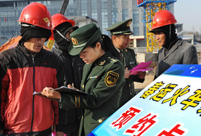 People prepare for upcoming 'Chunyun'
People prepare for upcoming 'Chunyun'  Highlights of Beijing int'l luxury show
Highlights of Beijing int'l luxury show Record of Chinese expressions in 2013
Record of Chinese expressions in 2013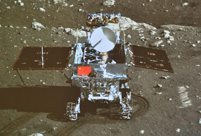 China's moon rover, lander photograph each other
China's moon rover, lander photograph each other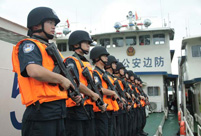 17th joint patrol of Mekong River to start
17th joint patrol of Mekong River to start Spring City Kunming witnesses snowfall
Spring City Kunming witnesses snowfall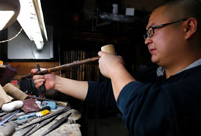 Heritage of Jinghu, arts of strings
Heritage of Jinghu, arts of strings Weekly Sports Photos
Weekly Sports Photos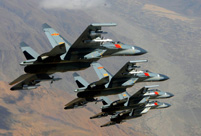 PLA elite units unveiled
PLA elite units unveiled  China's stealth fighters hold drill over plateau
China's stealth fighters hold drill over plateau Chinese navy hospital ship's mission
Chinese navy hospital ship's mission  "Free lunch" program initiated in NW China
"Free lunch" program initiated in NW China  Rime scenery in Mount Huangshan
Rime scenery in Mount Huangshan DPRK's Kaesong Industrial Complex
DPRK's Kaesong Industrial Complex 'Jin' named the word of the year
'Jin' named the word of the year Day|Week|Month